Foreigners of Greystones – Trading Mauritius for Ireland
19/10/2020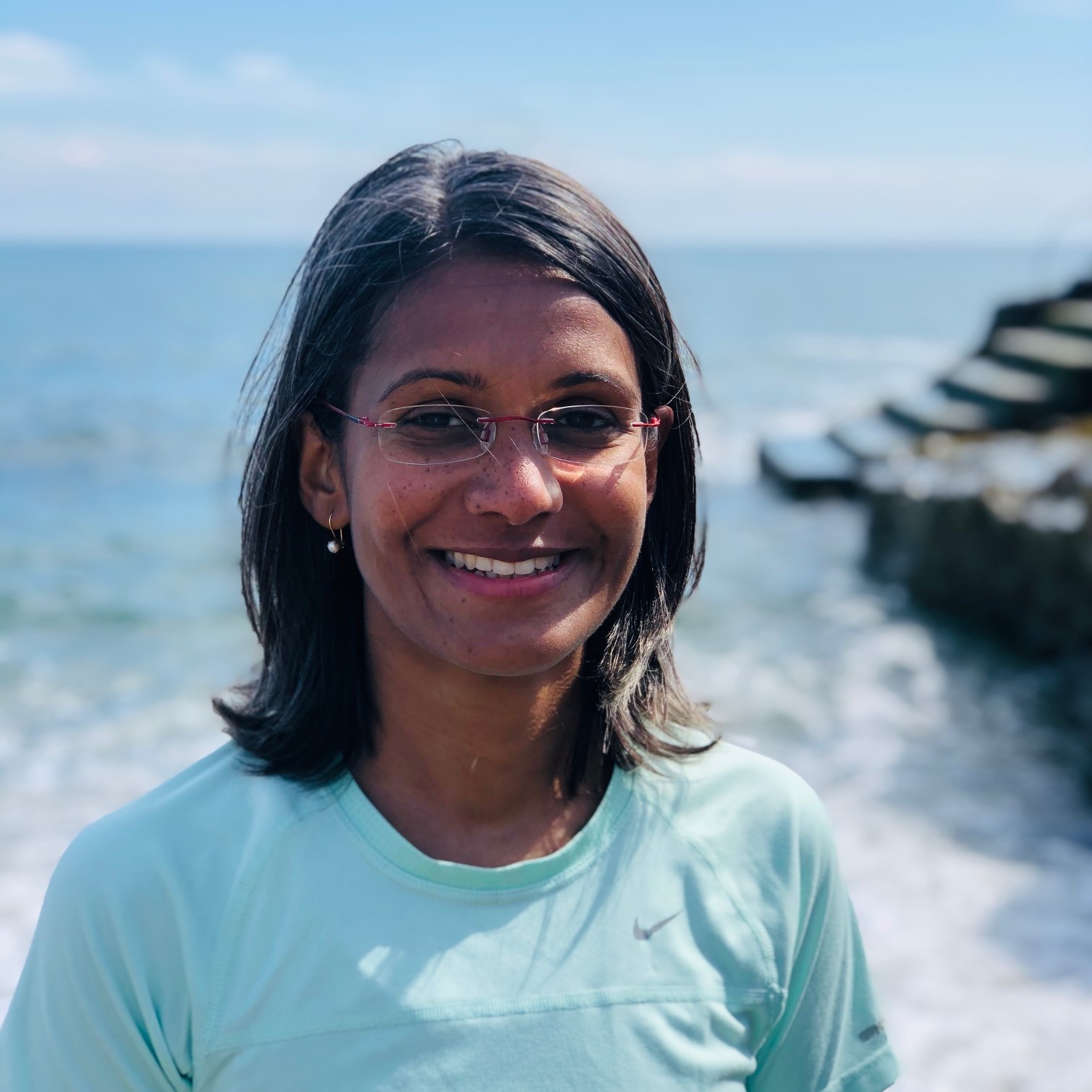
From Island to Island – Farzana’s Story
I love my project “Foreigners of Greystones”. Whilst I knew the people who were going to participate, I now realise that I didn’t really know them. With each article I learn so much about their home countries and above all their diverse life stories. It is a pleasure to share it on my blog.
Farzana answered my interview questions in such great detail and so eloquently that I wondered if I need to retell her story in my own words. I am going to try anyway. Hearing about Mauritius, where Farzana is from, was super interesting. I hope it will be for you too. Feel free to leave a comment what you liked best about Farzana’s (and my) story.
Our First Encounter
How I met Farzana seems to be a good start. Like Ana from my previous article, I first saw Farzana in one of the Greystones Parent & Toddler Groups. I asked her a question that she had probably heard a million times before. I bit my tongue straight afterwards. Could I not have come up with something a little bit more original, I thought to myself. Anyway, “How on earth could you leave Mauritius for Ireland?“, I asked her. And this was when she started telling me her story.
I couldn’t guess where Farzana was from. In fact, I had never met anyone from Mauritius before. Nor did I know much about the island in the Indian Ocean. Except that it was a popular honeymoon destination with stunning beaches. I held back on saying this out loud though. No need to start on another cliche after my cliched entry question.
Why Ireland?
I am personally very interested in what brought people from all over the globe to Ireland. And in particular how they ended up in Greystones. It is the central question of “Foreigners of Greystones” and what started me on the project in the first place.
Farzana had been living in different European countries before she came to Ireland. During her studies in France she met her Mauritian husband who was studying in Ireland at the time. While she returned to Mauritius to work there for a couple of years, her soon-to-be-husband stayed in Ireland completing his training. After their wedding, Farzana joined him on the Emerald Isle and they lived happily ever after.
From Mauritius to Greystones
It would be a short story if this ‘happily ever after’ was actually the end of it. Instead Farzana, her husband and their meanwhile 2 children lived in Dublin for 8 years, before they decided to go back to Mauritius. Understandably, they wanted to be closer to their families, now that they had one on their own.
After only 9 months back in Mauritius, the young family realised that this was not what they had pictured for their life. They made the decision to move back to Ireland. This time to the family-friendly Greystones. A friend helped them to settle in and their son got to join his best mate in playschool. Two reasons why they had picked Greystones. Another ‘happily ever after’, but still not the end of Farzana’s interesting story.
Outcast or Insider?
Farzana and her family have been living in Greystones for almost 2 years now. When I asked Farzana if she feels integrated into the local community, her answer surprised me: “That’s a tough one. Sometimes I really feel integrated, like I am part of this community. Other times, one look can make me feel out of place. Most of the time, I have felt very welcome here but then there are some hard times when I felt really lonely and not where I should be. It is a choice not to live in my country and therefore something I have to accept and live with.“
“There is a small minority of people who understandably feel people from other countries are taking too much space“, Farzana says. Obviously that makes her “feel out of place or ill at ease sometimes“, she continues. “But having lived in other European countries, I was nicely surprised by the warmth of the Irish! With the name and the skin colour that I have, it has sometimes been challenging to live in other countries but the Irish people were really welcoming in spite of the differences,“ Farzana concludes.

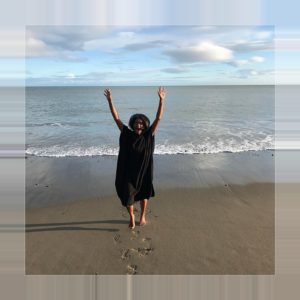

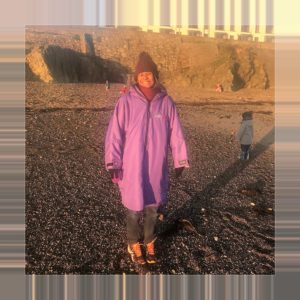
Racism in Greystones?
Mentioning the words ‘Racism’ and ‘Greystones’ in one sentence makes me cringe. Almost like a taboo. Not because I think it doesn’t need to be addressed. But more due to the fact that it makes me realise it even exists in a small community like Greystones.
I guess especially in a small neighbourhood where people know each other, it is an issue rather than in a big city. Not long ago you were considered “foreign” when you moved from the neighbour town Bray to Greystones. Whilst it is nice to be part of a community and to be recognised, it is also harder to blend in when you look different.
All in the same Boat?
The Irish are a nation of emigrants and so are the Mauritians as Farzana explains to me: “It is probably in our genes we move around the world so much because our ancestors actually emigrated to Mauritius. I remember someone saying that for a small island there are quite a number of us all around the world.“
Being an immigrant myself I can personally relate to what Farzana is saying. However when I occasionally feel as an outsider, it is more in my own head assuming people are judging me because of my foreign accent. Basically Farzana and I have the same status as immigrants in Ireland. And still Farzana experiences it differently due to her skin colour. That is what racism is about, isn’t it?
A little History
“Many different countries have colonised Mauritius. Sailors found the island on their way from Europe to Asia. At that time, it only consisted of mountains, forests and animals. Between 1600 and 1800 its discoverers slowly populated Mauritius. Firstly the Dutch, then mainly the French and British. They used the island as a stopping point on their journey to Asia. Mauritians are therefore descendants of all the people who settled in Mauritius a long time ago.“
Sadly, among the settlers working the fields and rearing the animals, were slaves from Africa and at a later stage workers from India (Farzana’s ancestors). “This history, however, was an important aspect of Mauritius because it defines who we are as an island and also where our roots stem from. That leaves us with a rich heritage may it be in terms of architecture, cuisine or language“, Farzana states proudly.
A Matter of Taste
Farzana’s answer to the question what her biggest cultural shock was when she came to Ireland made me laugh: “What I struggle with is probably that they serve cream with every dessert and that food portions here are massive!“ Likewise Irish people can’t seem to understand that not all people live up to their weight standards. I remember Farzana telling me that the health nurse tried to match up her daughter to the standard weight percentile during the developmental checks. We were both laughing – one look at Farzana’s stature reveals that there is no Irish measurement for ‘petit but healthy’.
With regard to food portions and creamy desserts the Germans are probably closer to the Irish than to the Mauritians. But when it comes to dress code Farzana and I are totally on the same page. Wearing pyjamas in public and even to social outings, we both haven’t acquired a taste for yet. Clearly another cultural difference Farzana noticed living in Ireland.
Irish Summers equal Mauritius Winters
When Farzana admitted that it was quite a big deal getting used to the Irish weather too, I don’t feel that bad anymore having asked her why she left Mauritius for Ireland. Considering the tropical climate with temperatures between 14 and 18 degrees during Mauritius winters, it is surprising the cold Irish summers were not a deal breaker for Farzana. Some years temperatures of 18 degrees might be the highest of feelings during the summer months in Ireland.
‘Honeymoon’ Childhood?
Although Farzana grew up less than 10 minutes from the beach, she now spends more time in the cold Irish Sea than she did as a child in Mauritius. “The Mauritian East coast is well known for its beaches. It is on the windy side of the island but has some of the island’s best-known tourist resorts“, Farzana tells me. Whilst I still imagine what it must have been like growing up in one of the most popular honeymoon destinations in the world, Farzana said that for locals these resorts and luxury hotels were as unreachable as for someone living on the other side of the planet.
“Things have evolved thankfully. Mauritians can nowadays enjoy some of the resorts around the island during low season at more affordable price. Foreigners visiting the island and staying in hotels only get a glimpse of the breathtaking beauty of the island. They don’t see the day-to-day living and reality of people working there“, Farzana adds.
Authentic but Convenient
Having worked for several Irish inbound tour operators, I am amazed about the similarities in the international travel business. Apparently there is a demand for more authentic and sustainable tourism. On the other hand, I feel authenticity has its limits and tourists definitely don’t want to go beyond their boundaries of convenience. They are on vacation after all.
During my work in Irish tourism, I had requests of people wanting to meet up with a real Irish community. They thought they could march into somebody’s living room and see how locals spend their day-to-day life. The bestseller still is the Traditional Irish Night with music and Irish Dancing, claiming that this is what Irish people do. It is in a way, but not night in night out in front of a huge, pre-booked audience. Nothing authentic about that. My husband always comments that with “If they want a traditional Irish night, they should come to our house and watch us fall asleep on the couch at 9 pm.“
The Tourism Façade
In all seriousness, of course I get the concept of showing traditions and folklore to tourists. It gives them an impression of local customs and culture. But that’s about it – an impression. Obviously a travel group of 40 people cannot just pop into a spontaneous trad session in the pub around the corner. And that is exactly the point: Large groups and people on package holidays are very rarely going to experience an authentic Ireland.
Tourism, in whatever way, is an import source of income in most countries. And for a lot of travellers ‘ticking boxes’ by seeing iconic sites is enough to say they have seen a country. Exactly like Farzana states about people vacationing in Mauritius. I personally find it upsetting when a façade created for tourists is taken for the ‘real thing’. In my eyes it is shining a false light on a region or country. The impression given to tourists is hardly ever a mirror of reality. Hence non-authentic by definition.
The Disguise of Doing Good
An even bigger paradox is charity under the name of the most harmful forms of travelling. Massive ocean liners promoting green and sustainable tourism. Hop-on-hop-off busses touring rubbernecks through slums and townships. Agencies who promote “1-day-as-a-farmer-in-a-rice-field” as authentic adventure. It may shine light on a situation that requires attention which is positive. But in my eyes it is far from sustainable or authentic tourism.
I have been thinking for a while now about how international travel could be changed for the better. Revolutionised so to speak. And then Corona hit…Apart from that I have distanced myself a long time ago from mass tourism and package travel. Personally and professionally. I still consider myself as a travel consultant. In what way I will contribute to the tourism sector when it comes to it again, I am just about to work out.
Farzana’s Vocation
What would my articles be without my little digressions off topic as per the above. Nevertheless tourism is the biggest and most important source of income in Mauritius, too. Despite that Farzana found her vocation in a different sector which I personally am very intrigued in. As a trained business psychologist she has worked for various companies in Ireland. Sectors she consulted with include health, aviation, energy development and military forces.
After having had a career break for 3 years for her children, Farzana is currently re-entering the workforce. Her field of expertise covers assessment centres for selection and development, psychometric assessments, competency development, coaching support as well as other human resources related functions. Farzana provides trainings such as change management programmes and performance management training. Their aim is to provide support to organisations or individuals in order to enhance their performance and well-being and reach their goals.
“Shock to the System”
I used to meet Farzana almost every week in our local playgroup that she volunteered to organise by the way. Due to current circumstances I hardly see her anymore. But if, it is mostly on the beach in Greystones where she bravely goes for a swim every day. Rightly so, Farzana considers her daily swim – regardless the weather – one of her biggest achievements over the last year.
“Since September 2019, with a group of mums I have come to know, I got addicted to sea swimming. The cold water wakes me up and forces me to be present and to connect with how my body is feeling. While it is a shock to my system, it is also a breath of fresh air and I have never regretted a swim except when I have tried seas that were too rough for me! The thrill and the feeling after a swim are probably why I always go back. I always feel that I can take and handle everything better after a swim and I am so grateful to be living so close to the sea. Over the last year, I have come to meet so many people who I meet at the beach and with whom I share this passion for the sea swimming.“
To be continued…
There is so much more that I could write about Farzana and her home island Mauritius. And there are also many more questions that I would like to ask her. I’ll leave that for a chat face-to-face over a cup of coffee somewhere in Greystones. Hopefully soon! For now I would like to conclude this article with Farzana’s – very apt for these days – philosophy of life: “There is nothing more constant than change. Life just keeps on changing. I am not living with my parents anymore. My kids are not babies anymore. I am not a young graduate anymore and so on. So make the most of the present because this will change and evolve!“
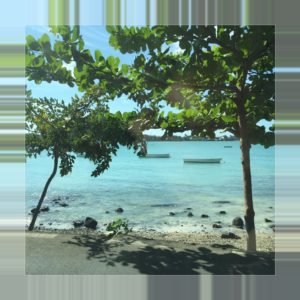
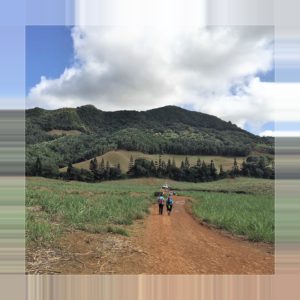

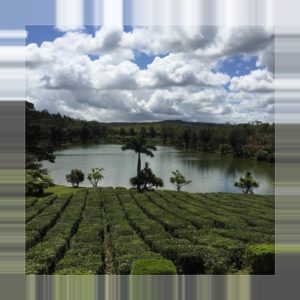


Really interesting enjoyable read
Thanks Rebecca! Really appreciate your comment as always :-)!
I love your writing Sylvia ! This was so enjoyable to read 👏
Thanks Violine, happy you like it 😊.